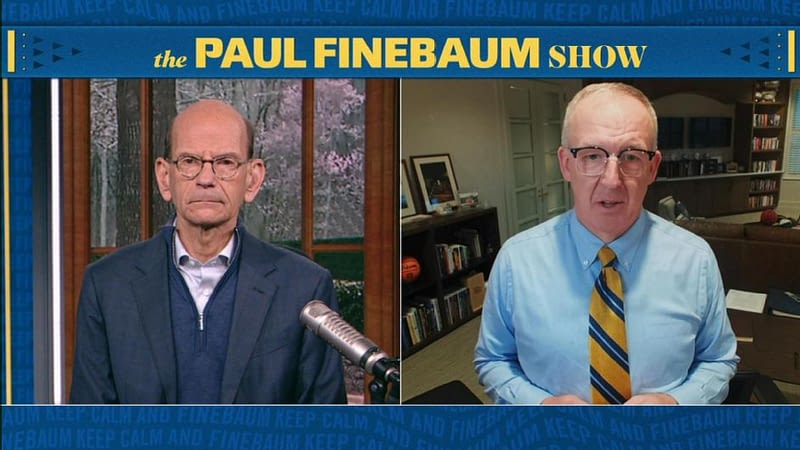SEC and Big Ten Commissioners Push for Change in College Football Playoff Seeding
NEW ORLEANS, La. — In a move that could reshape the landscape of college football, SEC commissioner Greg Sankey and Big Ten commissioner Tony Petitti have voiced their support for altering the seeding process in the 12-team College Football Playoff (CFP). This announcement came after a joint meeting of athletic directors from their respective conferences on Wednesday. The two commissioners, representing the most influential conferences in college football, are advocating for a change that could take effect as early as the 2025 season.
However, any modifications to the seeding process require unanimous approval from all 10 FBS commissioners and Notre Dame athletic director Pete Bevacqua. “I’m prepared to vote for seeding change, but it has to be unanimous,” Sankey stated, emphasizing the need for collective agreement.
The current seeding system, which granted the four highest-ranked conference champions the top four seeds and a first-round bye, has been a point of contention. Last season, this format allowed ninth-ranked Boise State and 12th-ranked Arizona State to secure the No. 3 and No. 4 seeds, respectively. Meanwhile, third-ranked Texas and fourth-ranked Penn State were relegated to the Nos. 5 and 6 seeds as they were not conference champions.
One popular proposal, which Petitti supports, is to use the selection committee’s rankings for seeding while still accommodating the five highest-ranked conference champions. This model would allow the committee’s top four teams to earn the top seeds and first-round byes, irrespective of their conference champion status. This change would also enable Notre Dame, as an independent, to potentially earn a first-round bye as a top-four seed.
“We’re in favor of going to a straight seeding, where there’s no difference between rankings and seeing like we had this year,” Petitti said. “We’re in support of that for next year.”
The meeting between the Big Ten and SEC was a precursor to a larger gathering in Dallas, where Petitti, Sankey, and other FBS commissioners, along with Bevacqua, will conduct a comprehensive review of the inaugural 12-team playoff. The SEC and Big Ten wield significant influence over the future of the CFP, especially with the new contract with ESPN set to begin post-2025.
When asked about the future playoff format, Sankey remained tight-lipped, stating, “That’s something we owe our colleagues first.” However, sources from both leagues have indicated a preference for expanding the field to 14 teams in 2026 and beyond. There is also a push for automatic playoff spots for each league, though opinions vary within the conferences.
- Four guaranteed teams each from the Big Ten and SEC
- Two teams each from the Big 12 and ACC
- One spot for the highest-ranked Group of 5 champion
- One at-large spot, potentially for Notre Dame
While Sankey did not comment directly on automatic qualifiers, he acknowledged ongoing discussions about the format. “This is not a new issue,” he remarked.
Petitti highlighted the need for consensus between the SEC and Big Ten, stating, “The process going forward if we decide to make changes contemplates that the structure of that is led by the SEC and the Big Ten, so it requires us to get to a consensus to make a meaningful recommendation if any to our colleagues in other leagues.”
Sankey noted that the 2026 season is a “pretty small part” of the agenda for the upcoming CFP meeting in Dallas, with a primary focus on 2025. However, the recent meeting provided an opportunity for both conferences to initiate in-person discussions about the future.
“I think we both individually owe our colleagues an update on our thinking,” Sankey said. “Is it alignment? I’m not going to use that word. We’ve got our issues to work through. Our regular-season scheduling issue … can we compare notes? Absolutely, but I’d be cautious about using the word ‘alignment’ at this point.”
Sankey expressed a desire for a clearer understanding of the selection committee’s decision-making process, citing inconsistencies in the value of conference championship games and strength of schedule. “We entrust them with that work, but there are domino effects from those selection decisions,” he said.
Petitti echoed sentiments from former selection committee chair and Michigan athletic director Warde Manuel, stating, “I believe the committee was doing the work that was set in place.” He added that the current system is part of the discussions for next year to provide the committee with more flexibility.
Earlier this week, SEC coaches met with the league’s athletic directors, who then convened separately before the Big Ten joined them. Sankey mentioned that considerations for a nine-game league schedule are ongoing, but no decisions have been made yet.
Wednesday’s meeting also touched on the House vs. NCAA settlement and future NCAA governance. Petitti noted that while the Big Ten and SEC are leading the CFP format discussions, the NCAA governance talks have been “incredibly collaborative and involves everybody.”
“People are working together,” Petitti said. “… The work that’s been down around the settlement among the conferences is probably unprecedented in terms of the amount of collaboration that’s required to get this right.”
As for the CFP discussions, Sankey emphasized the responsible leadership of the Big Ten and SEC, stating, “Moving forward, Tony described a methodology that was agreed to by everyone a year ago for how decisions will be made by everyone — not dictated by us — agreed to by everyone. We have a responsibility to use that wisely.”
Originally Written by: Heather Dinich





















